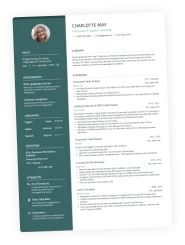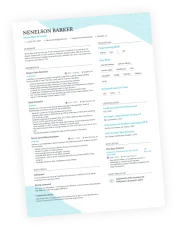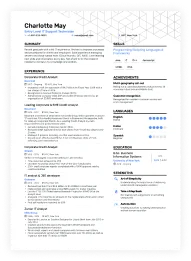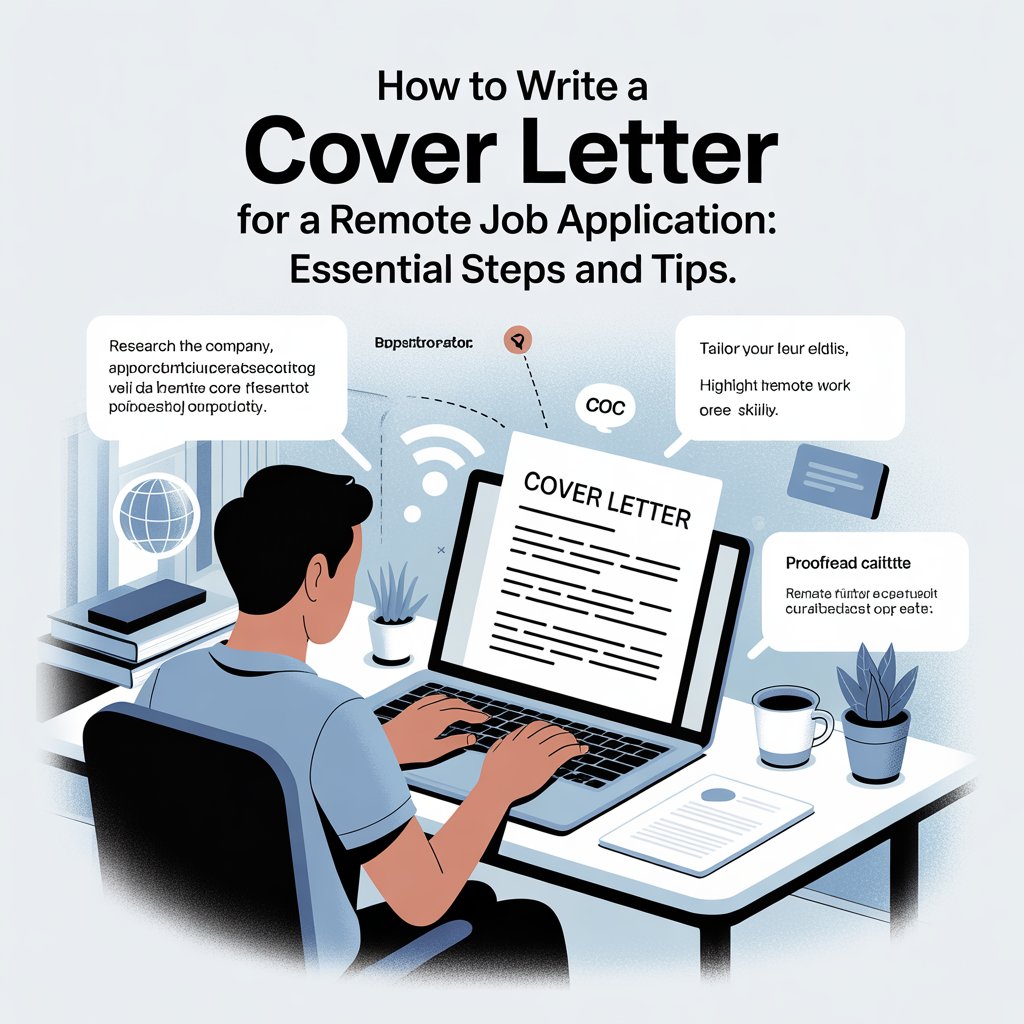Crafting an effective application letter in Zambia can be a game changer in your job search. It’s your chance to make a strong first impression and showcase your qualifications to potential employers. Whether you’re applying for a local company or a multinational firm, understanding the nuances of the application letter format and the Zambian job market is crucial. This guide offers practical tips to help you create a standout application letter that will grab attention and increase your chances of landing an interview.
Key Takeaways
- Understand the key components of an application letter in Zambia, such as addressing the employer and including your qualifications.
- Tailor your letter for each job by researching the company and highlighting relevant skills.
- Keep your writing clear and free of common mistakes like typos and generic phrases.
- Include a professional email with your application, ensuring it has a clear subject line.
- Don’t forget to follow up after submitting your application to show your continued interest.
Understanding the Application Letter Format in Zambia
Key Components of an Application Letter
In Zambia, as elsewhere, a standard application letter follows a specific structure. It typically begins with your contact information, followed by the date, and then the employer’s contact information. The salutation should be formal (e.g., "Dear Mr./Ms./Dr. [Last Name]"). The body of the letter should consist of an introduction, one or two paragraphs detailing your qualifications and relevant experience, and a concluding paragraph expressing your interest and availability. Finally, end with a professional closing, such as "Sincerely" or "Yours faithfully," followed by your signature and typed name. Adhering to this structure demonstrates professionalism and attention to detail.
Common Mistakes to Avoid
Several common errors can undermine the effectiveness of your application letter. These include:
- Using informal language or slang.
- Making grammatical errors or typos.
- Failing to tailor the letter to the specific job.
Avoid generic statements and instead, provide specific examples of your skills and accomplishments. Never include irrelevant information or negative comments about previous employers. Proofread carefully before submitting your application.
Formatting Tips for Clarity
Proper formatting enhances the readability and impact of your application letter. Use a clean, professional font such as Times New Roman or Arial, with a font size of 11 or 12. Maintain consistent margins (typically one inch on all sides). Single-space your letter and use double spaces between paragraphs. If submitting a hard copy, use high-quality paper. For email submissions, send the letter as a PDF attachment to preserve formatting. You can download email job application letter templates to help with formatting.
Here’s a simple table illustrating font choices:
| Font Name | Use Case |
|---|---|
| Times New Roman | Formal, traditional applications |
| Arial | Modern, versatile applications |
| Calibri | Widely accepted, clean look |
Tailoring Your Application Letter to Specific Jobs
Researching the Company
Before you even begin drafting your application letter, take the time to thoroughly research the company. This isn’t just about knowing what they do; it’s about understanding their values, their mission, and their recent achievements. A well-researched letter demonstrates genuine interest and shows you’ve put in the effort to understand their needs. Look for information on their website, social media, and news articles. Understanding the company culture will allow you to tailor your language and highlight experiences that align with their specific environment. For example, if they emphasize innovation, showcase your problem-solving skills and creative initiatives. If they value teamwork, highlight your collaborative experiences and ability to work effectively in a group. This targeted approach will make your application stand out from the generic submissions.
Highlighting Relevant Skills
Your application letter is your chance to connect your skills directly to the job requirements. Don’t just list your skills; explain how you’ve used them to achieve results. Use the job description as your guide, and identify the key skills and qualifications they’re seeking. Then, provide specific examples from your past experiences that demonstrate those skills. For instance, if the job requires project management skills, you could describe a project you successfully managed, highlighting your planning, organization, and problem-solving abilities. Quantify your achievements whenever possible. Instead of saying you "improved customer satisfaction," say you "increased customer satisfaction by 15% in six months." This makes your claims more credible and impactful. Here’s a simple table to illustrate how to connect skills to examples:
| Skill | Example |
|---|---|
| Project Management | Managed a team of five to deliver a project under budget and ahead of schedule. |
| Communication | Presented complex data to stakeholders, resulting in informed decision-making. |
| Problem-Solving | Identified and resolved a critical system error, preventing significant downtime. |
Customizing Your Language
Generic application letters are easily spotted and often discarded. To make your letter stand out, customize your language to match the tone and style of the company. Review their website and other communications to get a sense of their brand voice. Are they formal and professional, or more casual and approachable? Use similar language in your letter to show that you understand their culture and can fit in seamlessly. Avoid using overly formal or technical language unless it’s appropriate for the industry and the specific job. Instead, focus on clear, concise language that highlights your key qualifications and demonstrates your enthusiasm for the opportunity. Remember, your application letter is a reflection of your communication skills, so make sure it’s well-written, error-free, and tailored to the specific job and company.
Tailoring your application letter is not just about changing a few words; it’s about demonstrating that you understand the company’s needs and that you have the skills and experience to meet those needs. It’s about showing that you’re not just looking for any job, but that you’re specifically interested in this job at this company.
Consider these points when customizing your language:
- Use keywords from the job description.
- Research the company’s values and mission.
- Match the tone of your letter to the company’s culture.
- Proofread carefully for errors in grammar and spelling.
- Ask someone else to review your letter before you submit it.
By taking the time to tailor your application letter, you’ll significantly increase your chances of getting an interview. Remember to always proofread and edit. Employers are likely to overlook an application with a lot of errors. You can use Grammarly for spellings and edit your errors. If you are still unsuccessful, you can just address the application letter to the human resource department (for example: Human Resource Department, ABC Corporation). As long as you incorporate the necessary details in writing a job application letter, then you can be assured that you will be shortlisted by the company for an interview or exam. You can also use our nursing cover letter examples to enhance your job application.
The Role of a Cover Letter in Job Applications
Difference Between Cover Letter and Application Letter
Okay, so what’s the deal with cover letters and application letters? Are they the same thing? Not really. Think of an application letter as a general response to a specific job posting. It’s pretty formal and hits all the main points about why you’re qualified. A cover letter, on the other hand, is more like your chance to show some personality and really connect with the employer. It’s a more personalized introduction to your resume. It lets you explain why you want the job and how your skills match the company’s values. Basically, the application letter is the what, and the cover letter is the why.
Importance of Personalization
Seriously, don’t just send out the same generic cover letter to every job. It’s super obvious when you do, and it shows you haven’t put in the effort to actually research the company. Personalization is key. Mention something specific about the company that interests you. Talk about a project they did or a value they hold that aligns with your own. Show them you’ve done your homework and you’re genuinely excited about the opportunity. It makes a huge difference. Tailoring your cover letter examples can significantly boost your chances.
How to Structure Your Cover Letter
Alright, let’s break down how to write a cover letter that actually gets noticed. Here’s a simple structure to follow:
- Start with a strong opening: Grab their attention right away. Mention the specific job you’re applying for and how you found out about it.
- Showcase your skills: Don’t just repeat your resume. Highlight the skills and experiences that are most relevant to the job. Explain how you can contribute to the company’s success.
- Demonstrate your knowledge of the company: Show that you’ve done your research and understand their mission and values. Mention something specific that resonates with you.
- End with a call to action: Express your enthusiasm for the opportunity and invite them to contact you for an interview. Thank them for their time and consideration.
Remember, your cover letter is your chance to make a great first impression. Take the time to craft a compelling and personalized message that showcases your skills and enthusiasm. A well-crafted personal marketing tool can set you apart from other candidates.
Essential Documents to Accompany Your Application Letter
Curriculum Vitae Essentials
Your Curriculum Vitae (CV) is a detailed summary of your professional and academic history. It’s more than just a list; it’s your career story. Make sure it includes:
- Full contact information
- A concise career objective or summary
- Detailed work experience (company, dates, responsibilities, achievements)
- Educational background (institution, degree, dates)
- Skills (technical, soft skills, language proficiency)
A well-structured CV is easy to read and highlights your most relevant qualifications. Tailor it to each job application to emphasize the skills and experiences that match the job description.
References and Their Importance
References are individuals who can vouch for your skills, work ethic, and character. Always ask for permission before listing someone as a reference. Provide their:
- Full name
- Job title
- Company
- Contact information (phone number and email address)
It’s good practice to have at least three references. Choose people who know your work well and can speak positively about your abilities. References add credibility to your application. Make sure to keep your application letter format professional.
Additional Supporting Documents
Depending on the job and industry, you might need to include other documents with your application. These could include:
- Certified copies of academic transcripts and certificates
- Professional licenses or certifications
- A portfolio of your work (if applicable)
- Letters of recommendation (if available)
These documents provide further evidence of your qualifications and can strengthen your application. Remember to only include documents that are relevant to the job you’re applying for. A well-crafted cover letter can also help you stand out.
Professional Email Etiquette for Job Applications
Crafting a Professional Email
When applying for jobs in Zambia, your email is often the first impression you make. It’s important to craft it carefully. Start with a clear and concise subject line, such as "Job Application – [Your Name]" so the hiring manager knows exactly what the email is about. The body of your email should be brief, professional, and tailored to the specific job you’re applying for. Mention the position you’re interested in and briefly highlight your key qualifications. Always attach your resume and any other required documents. Proofread meticulously before sending. Remember, English is the official language, so ensure your grammar and spelling are impeccable. You can also show that you understand the Zambian job market by tailoring your email to the industry and role.
Subject Line Best Practices
The subject line of your email is prime real estate. Don’t waste it! A good subject line should be specific and informative. Here are some examples:
- "Application for [Job Title] – [Your Name]"
- "[Job Title] Application – [Your Name]"
- "Interested in [Job Title] Position – [Your Name]"
Avoid generic subject lines like "Job Application" or "Resume." These are likely to get lost in the shuffle. Also, never use all caps or excessive punctuation. Keep it professional and to the point. A well-crafted subject line increases the chances of your email being opened and read. Make sure to customize your cover letter salutation to make a positive impression.
Follow-Up Email Guidelines
Following up after submitting your application shows initiative and continued interest. However, there’s a fine line between being proactive and being pushy. Wait about a week to ten days after submitting your application before sending a follow-up email. Keep your follow-up brief and polite. Reiterate your interest in the position and ask if there’s any additional information you can provide. Avoid demanding a response or timeline. A simple "I am writing to reiterate my interest in the [Job Title] position and inquire about the status of my application" is sufficient. Thank them again for their time and consideration. Remember, patience is key.
Following up demonstrates your enthusiasm and professionalism, but it’s important to be respectful of the employer’s time and process. Don’t bombard them with multiple emails or phone calls. A single, well-crafted follow-up is usually enough.
Common Application Letter Mistakes to Avoid
Spelling and Grammar Errors
It’s easy to rush through writing an application letter, but nothing sinks an application faster than typos and grammatical errors. Proofreading is key. Even small mistakes can make you look unprofessional and careless. Always double-check your work, and consider asking a friend or family member to review it as well. Tools like Grammarly can also be helpful, but don’t rely on them exclusively. A fresh pair of eyes can catch errors that software might miss. Remember, your application letter is often the first impression you make on a potential employer, so make it count. You can also use a job application letter sample as a guide.
Generic Content
One of the biggest mistakes is sending out a generic application letter. Employers can spot a template a mile away. Your letter should be tailored to the specific job and company. This means researching the company, understanding their values, and highlighting how your skills and experience align with their needs. A generic letter shows a lack of effort and genuine interest. Take the time to customize each letter, showcasing why you’re the perfect fit for that particular role. Think about what makes you unique and how you can contribute to their team.
Lack of Specificity
Avoid vague statements about your skills and experience. Instead, provide specific examples of your accomplishments and how you’ve used your skills to achieve results. Quantify your achievements whenever possible. For example, instead of saying "I improved customer satisfaction," say "I improved customer satisfaction scores by 15% in six months." Use the relevant keywords throughout your application letter. Specificity adds credibility to your claims and demonstrates your value to the employer.
A well-crafted application letter is more than just a formality; it’s your chance to shine and make a lasting impression. By avoiding these common mistakes, you significantly increase your chances of landing an interview and taking the next step in your career.
The Importance of Proofreading Your Application Letter
Techniques for Effective Proofreading
Proofreading is essential to ensure your application letter presents you in the best possible light. A single error can create a negative impression, suggesting a lack of attention to detail. Effective proofreading involves more than just a quick read-through. It requires a systematic approach.
- Read the letter aloud: This helps you catch awkward phrasing and grammatical errors that you might miss when reading silently.
- Print a hard copy: Errors often become more apparent on paper.
- Focus on one aspect at a time: Check specifically for spelling, grammar, punctuation, and formatting in separate passes.
Using Tools for Error Detection
While manual proofreading is important, various tools can assist in identifying errors. Software like Grammarly or the built-in spell and grammar checkers in word processors can catch mistakes you might overlook. However, it’s important to remember that these tools are not foolproof. They may not identify all errors, especially those related to context or style. Always review the suggestions carefully and use your own judgment. Using a Zambian job application letter sample can also help you identify potential errors by comparing your letter to a well-written example.
Seeking Feedback from Others
Having someone else review your application letter can provide a fresh perspective and catch errors you might have missed. Choose someone with strong writing skills and attention to detail. Ask them to focus on clarity, grammar, spelling, and overall impact. Be open to constructive criticism and willing to make revisions based on their feedback. A second pair of eyes can make a significant difference in the quality of your application. Consider asking a career counselor or a trusted friend to review your cover letter for additional feedback.
Proofreading is not just about finding errors; it’s about ensuring your message is clear, concise, and professional. It demonstrates your commitment to quality and attention to detail, which are valuable assets in any job.
Understanding the Zambian Job Market
Current Trends in Employment
Understanding the current employment landscape is key to a successful job search. Zambia’s economy is influenced by various sectors, with mining playing a significant role. Recent data indicates a shift towards diversification, with growth in agriculture, tourism, and technology sectors. It’s important to tailor your application to align with these trends.
- Increased demand for skilled labor in specific sectors.
- Growth in entrepreneurship and small businesses.
- Emphasis on digital skills and technology adoption.
The Zambian job market is evolving, and staying informed about the latest trends will significantly improve your chances of finding suitable employment.
Industries with High Demand
Certain industries consistently show high demand for skilled workers. Identifying these sectors can help you focus your job search efforts. For example, the mining sector recovery is creating opportunities. Here’s a look at some key industries:
- Mining: Especially roles related to copper extraction and processing.
- Agriculture: With a focus on sustainable farming and food processing.
- Technology: Including software development, IT support, and digital marketing.
- Tourism: Hospitality, tour operations, and related services.
Cultural Considerations in Applications
Cultural awareness is vital when applying for jobs in Zambia. Understanding and respecting local customs can significantly impact your application’s success. It’s not just about skills; it’s about showing you understand the Zambian context. Here are some points to consider:
- Respect for hierarchy and seniority.
- Emphasis on building relationships and trust.
- Importance of formal communication and etiquette.
Remember, demonstrating cultural sensitivity can set you apart from other candidates. It shows you’re not just looking for a job, but you’re interested in becoming part of the Zambian community. Tailoring your electronic cover letter to reflect this understanding can be very effective.
Leveraging Local Language Skills in Your Application
In Zambia’s diverse job market, possessing local language skills can significantly enhance your application. While English is widely used in professional settings, demonstrating proficiency in languages like Bemba, Nyanja, or Tonga can set you apart. It shows respect for local culture and an ability to connect with a broader range of clients and colleagues. Let’s explore how to effectively incorporate these skills.
Benefits of Bilingualism
Being bilingual or multilingual offers several advantages in the Zambian job market. It expands your communication capabilities, allowing you to interact with a more diverse group of people. This is especially useful in roles that involve customer service, community engagement, or working in rural areas.
- Improved communication with local communities.
- Enhanced understanding of cultural nuances.
- Increased opportunities in international organizations operating in Zambia.
How to Include Language Skills
When including your language skills in your application, be clear and specific. Instead of simply stating "fluent," provide context. For example, you could say, "Fluent in Bemba, with experience conducting training sessions in the local language." You can also include your language skills in your curriculum vitae essentials, listing them alongside your other qualifications. Be honest about your proficiency level; it’s better to be accurate than to exaggerate.
Cultural Nuances in Communication
Understanding cultural nuances is just as important as language proficiency. Knowing how to communicate respectfully and effectively within a Zambian cultural context can make a big difference. This includes being aware of non-verbal cues, understanding social hierarchies, and using appropriate greetings and forms of address. Cultural sensitivity demonstrates your ability to integrate into the workplace and build strong relationships with colleagues and clients.
Demonstrating an understanding of Zambian culture and etiquette can greatly improve your chances of success. This includes showing respect for elders, being mindful of local customs, and adapting your communication style to suit the context. These considerations can set you apart from other candidates.
Preparing for Interviews After Submitting Your Application
So, you’ve sent in your application – great! But the journey isn’t over. Now comes the interview, which can be a nerve-wracking but also exciting step. It’s your chance to really shine and show them why you’re the best fit. Let’s break down how to get ready.
Researching Common Interview Questions
Okay, first things first: you need to anticipate what they’re going to ask. Think about the typical interview questions – "Tell me about yourself," "Why do you want this job?", "What are your strengths and weaknesses?" – and start crafting your answers. Don’t just wing it! Write them down, practice them out loud, and get comfortable talking about yourself and your skills. It’s also a good idea to research questions specific to the industry or the company. Tailor your responses to show you understand the role and the company’s needs. Understanding the Auditor General’s findings can help you discuss relevant issues if the role is in public finance.
Practicing Your Responses
Practicing your responses is key. It’s not enough to just think about what you’re going to say; you need to actually say it out loud. This helps you refine your answers, identify any awkward phrasing, and build your confidence. Here are a few ways to practice:
- Mock Interviews: Ask a friend or family member to conduct a mock interview with you. This simulates the real interview environment and gives you valuable feedback.
- Record Yourself: Record yourself answering common interview questions. This allows you to see your body language and hear your tone of voice, helping you identify areas for improvement.
- Mirror Practice: Practice in front of a mirror to observe your facial expressions and body language. This helps you maintain a confident and engaging demeanor.
Remember, the goal isn’t to memorize your answers word-for-word, but to have a good understanding of what you want to say so you can speak naturally and confidently.
Understanding Interview Etiquette
Interview etiquette is super important. It’s about showing respect, professionalism, and that you understand the unspoken rules of the game. Here’s a quick rundown:
- Dress Appropriately: In Zambia, formal attire is often expected. Make sure your clothes are clean, ironed, and professional.
- Arrive on Time: Being late is a major no-no. Plan your trip and leave early to avoid any unexpected delays.
- Body Language: Maintain eye contact, sit up straight, and avoid fidgeting. Your body language speaks volumes.
Also, remember to follow up with a thank you note after the interview. This shows your appreciation and keeps you in their mind. A well-crafted thank you letter can set you apart from other candidates.
Networking Strategies for Job Seekers in Zambia
Building Professional Relationships
Networking is super important when you’re looking for a job. It’s not just about handing out your CV; it’s about making real connections with people in your field. Think of it as building a community rather than just collecting contacts.
- Attend industry events and workshops.
- Join professional organizations.
- Reach out to people on LinkedIn for informational interviews.
Networking isn’t always easy, especially if you’re shy. Start small, maybe by connecting with former classmates or colleagues. The goal is to create genuine relationships that can help you down the road.
Utilizing Social Media
Social media isn’t just for sharing pictures; it’s a powerful tool for job seekers. LinkedIn is the obvious choice, but don’t underestimate the power of other platforms like Twitter or even Facebook groups related to your industry. Make sure your online presence is professional and reflects your skills and experience. You can find entry-level positions through social media.
- Update your LinkedIn profile regularly.
- Engage in industry-related discussions.
- Follow companies you’re interested in.
Attending Job Fairs and Events
Job fairs are a great way to meet multiple employers in a short amount of time. Come prepared with your CV and a short elevator pitch about yourself. Don’t just collect brochures; try to have meaningful conversations with recruiters. Remember to follow up with anyone you connect with after the event. Job fairs are a great way to make professional networks.
Here’s a simple table to help you prepare for a job fair:
| Item | Description |
|---|---|
| CVs | Bring at least 20 copies |
| Elevator Pitch | A 30-second summary of your skills and experience |
| Business Cards | If you have them, bring them. If not, make sure to get contact information. |
Following Up on Your Application Letter
When to Follow Up
So, you’ve sent your application. Now what? It’s tempting to sit by the phone, but a little nudge can show you’re still keen. Generally, wait about one to two weeks after the application deadline before following up. If there’s no specific deadline, use your best judgment, maybe around a week after you applied. Don’t be a pest, but don’t be invisible either. It’s a balancing act. Think of it as a polite reminder, not an interrogation.
How to Craft a Follow-Up Message
Keep it short and sweet. Reiterate your interest in the position and briefly mention something specific from the job description that excites you. Refer to your original application and the date you sent it. Avoid sounding demanding or entitled. A simple, professional tone works best. Proofread! Nothing kills a follow-up faster than typos. You can use a cover letter template to help you get started.
Here’s a basic structure:
- Start with a polite greeting (Dear Mr./Ms. [Last Name]).
- Remind them of your application (I submitted my application on [Date]).
- Reiterate your interest (I remain very interested in the [Job Title] position).
- Offer to provide more information (Please let me know if you require any further information).
- End with a professional closing (Sincerely, [Your Name]).
What to Expect After Following Up
Honestly, you might not hear back at all. It’s tough, but it happens. Recruiters are busy people. If you do get a response, it could range from an interview invitation to a polite rejection, or even a request for more information. Be prepared for anything. If you get an interview, great! If not, don’t get discouraged. View it as a learning experience and keep applying. Sometimes, timing just isn’t on your side. Remember to check out application letter tips to improve your chances.
Following up shows initiative, but it’s not a magic bullet. Focus on crafting strong applications and tailoring them to each job. A well-written application speaks volumes, and a polite follow-up can reinforce your interest without being overbearing.
After you send your application letter, it’s a good idea to follow up. This shows that you are really interested in the job. You can send a polite email or make a quick phone call to check on your application status. If you want to make your job search easier, visit our website to see how RoboApply can help you get hired faster!
Don’t wait too long to follow up!
Check out our site for more tips and tools to boost your job applications.
Wrapping It Up
In conclusion, writing a strong application letter in Zambia is all about being clear and genuine. You want to show your interest in the job and highlight why you’re a good fit. Remember to tailor your letter to the specific position and company. Keep it professional but let your personality shine through. Don’t forget to proofread for any mistakes, as those can leave a bad impression. Lastly, be persistent in your job search. It might take time, but with a solid application letter and a bit of patience, you’ll increase your chances of landing that job you want.
Frequently Asked Questions
What should I include in my application letter?
Your application letter should have your contact information, the employer’s details, a greeting, an introduction about yourself, your relevant skills and experiences, and a closing statement.
How can I customize my application letter for different jobs?
Research the company and job description. Use specific examples from your experience that match what the job requires.
What is the difference between a cover letter and an application letter?
An application letter is specifically for applying to a job, while a cover letter often accompanies a resume and introduces you to the employer.
Why is it important to proofread my application letter?
Proofreading helps catch mistakes that could make you look unprofessional, showing that you pay attention to detail.
Should I use a formal tone in my application letter?
Yes, using a formal tone is important as it shows respect for the employer and the position you are applying for.
How long should my application letter be?
Your application letter should be one page long, focusing on your most relevant skills and experiences.
What common mistakes should I avoid in my application letter?
Avoid spelling and grammar mistakes, using a generic template, and failing to tailor the content to the job.
Is it necessary to follow up after sending my application letter?
Yes, following up shows your interest in the position and can help keep your application top of mind for the employer.












